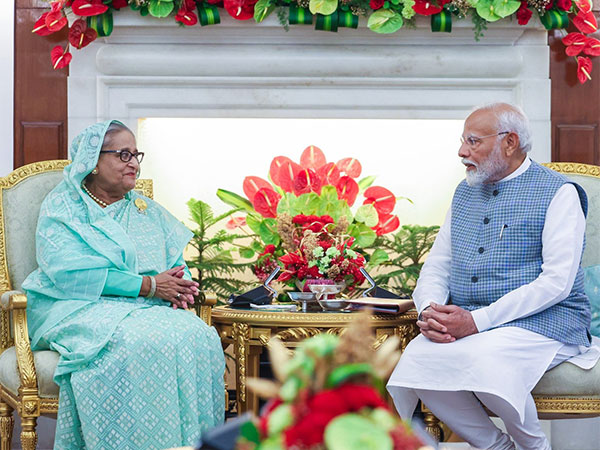Modi Criticizes Congress for 1975 Emergency: A 'Black Spot' on Democracy
Prime Minister Narendra Modi criticized the Congress for the 1975 Emergency, labeling it a 'black spot' on democracy. This period, marked by Indira Gandhi's suspension of civil liberties and crackdown on opposition, lasted for 21 months. Modi's remarks rekindled memories of nationwide movements and political instability leading to the Emergency.

- Country:
- India
Prime Minister Narendra Modi on Monday lashed out at the Congress over the 1975 Emergency, calling it a ''black spot'' on democracy when the Constitution was ''discarded.''
This period recalls the 21-month crackdown on civil liberties ordered by then Prime Minister Indira Gandhi.
On June 25, 1975, Gandhi announced the imposition of Emergency on All India Radio. This came shortly after the Supreme Court granted a conditional stay on the Allahabad High Court verdict nullifying her Lok Sabha election, effectively barring her from parliamentary proceedings.
'The President has proclaimed Emergency. There is nothing to panic about. I am sure you are all aware of the deep and widespread conspiracy, which has been brewing ever since I began to introduce certain progressive measures of benefit for the common man and woman in India,' Gandhi said in her midnight address to the nation that led to a series of arrests of opposition leaders.
Indira Gandhi's 1971 sweeping Lok Sabha victory and subsequent significant political moves, including the liberation of Bangladesh, contrasted sharply with political turmoil by 1975, such as the Navnirman movement in Gujarat and Jayaprakash Narayan's movement in Bihar.
The Congress's defeat in Gujarat elections and the massive opposition rally in Delhi on June 26, 1975, significantly triggered the Emergency.
Key opposition leaders, including JP, L K Advani, Atal Bihari Vajpayee, and Morarji Desai, were imprisoned as the Emergency began.
This era was notorious for abuses like forced sterilizations, press censorship, suspension of constitutional rights, and centralized power.
Unexpectedly, Gandhi called elections in January 1977, lifting the Emergency in March of that year.
According to Article 352, the President can proclaim an emergency if there is a severe threat to national security, whether due to war, external aggression, or armed rebellion.
Earlier emergencies included the 1962-1968 period during the India-China war and another in 1971 during the India-Pakistan war that led to Bangladesh's creation.
(This story has not been edited by Devdiscourse staff and is auto-generated from a syndicated feed.)
ALSO READ
Parliamentary Relevance in Decline: Sibal's Concerns for Democracy
Rahul Gandhi Engages with German Leaders on Global Cooperation and Democracy
Parliament's Decline: Kapil Sibal's Warning on Democracy
Rahul Gandhi Champions Democracy and Global Engagement in Germany
Maharashtra Gears Up for Municipal Polls: Democracy in Action










